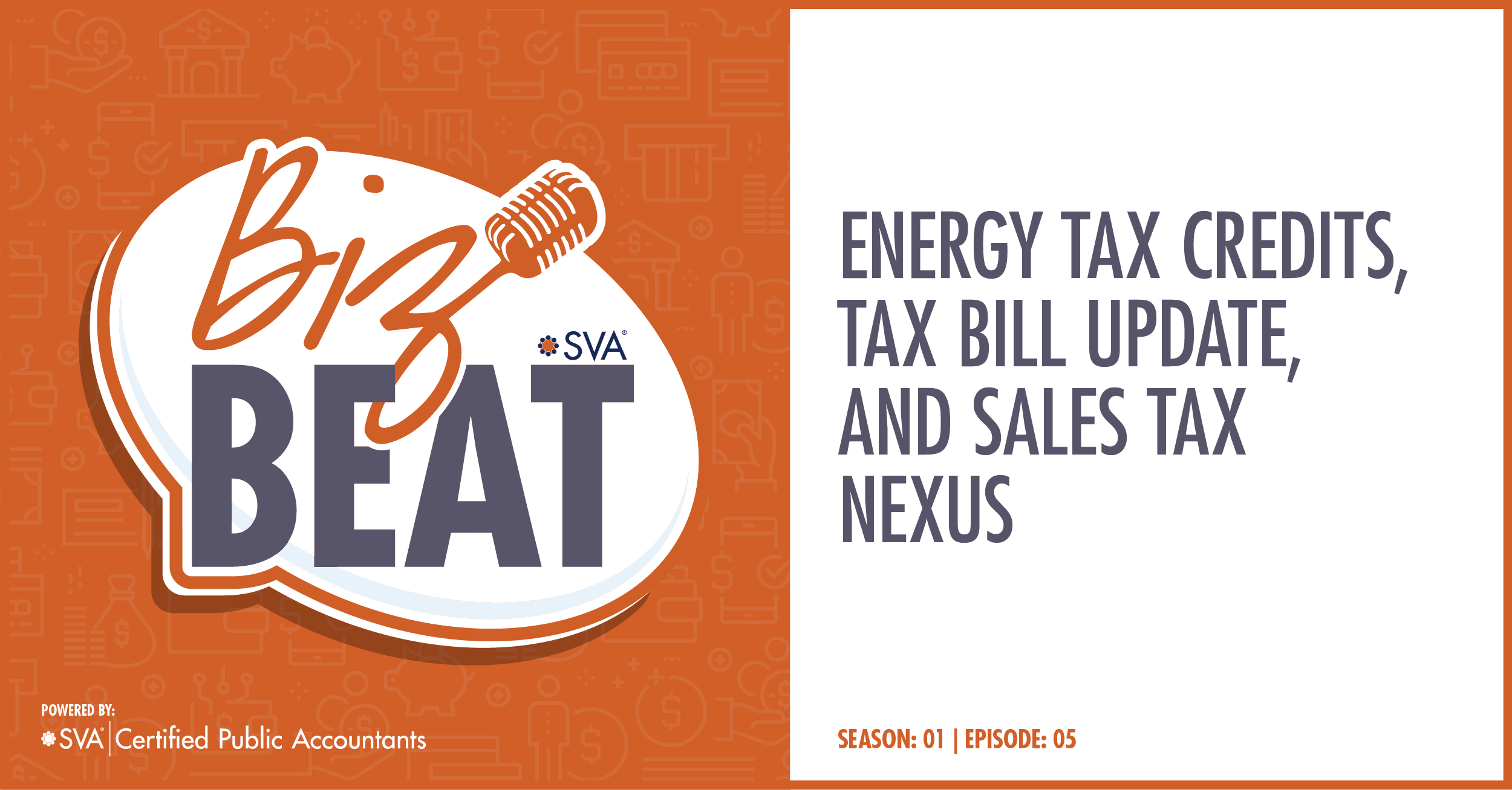A major tax bill making its way through Congress could significantly impact clean energy incentives for individuals and businesses. If passed, popular tax credits for electric vehicles and solar installations may end sooner than expected—potentially by the close of 2025.
In this update, we break down what’s changing, what business owners need to know, and how to act now to maximize available tax benefits before they disappear. Plus, we cover a key sales tax tip that could help you avoid future audits: filing a zero return in states where you may have nexus.
(Download Video Transcript)
Energy Tax Credits
A sweeping new tax bill has passed the House and is now on its way to the Senate. While there’s still time before anything becomes law, business owners and individuals alike should be paying attention, especially if they’ve been considering investments in clean energy.
As part of this proposed legislation, several clean energy tax credits are slated to go away sooner than expected if the bill is signed into law in its current form.
Here’s a quick rundown of what you need to know, and why you may want to act quickly.
Electric Vehicle Credits Could Be Gone by Year-End
Under current tax law, individuals can claim up to a $7,500 federal tax credit for purchasing a new electric vehicle, and there’s a separate credit for buying a used EV.
However, if this bill becomes law, those credits will be eliminated at the end of 2025. That means 2025 may be your last chance to take advantage of this incentive before it disappears.
It’s worth noting: You can’t just buy an EV by December 31. You need to take possession of it and have it ready for use. With long wait times still a possibility for some EV models, waiting until the last minute could leave you empty-handed.
Solar Energy Incentives Could Change
The proposed legislation also targets solar energy incentives, including the 30% federal tax credit for installing solar panels on residential homes and commercial properties.
That credit, which can represent thousands of dollars in savings, is also on the chopping block after 2025.
What counts as eligible for the credit? Generally, the system needs to be installed and placed in service before the deadline, not just under contract or partially paid for. While lawmakers often add grace periods or grandfather clauses, those aren’t guaranteed, so it’s safer to assume timing will matter.
Bottom Line for Business Owners
If your business has been exploring clean energy upgrades, like adding EVs to your fleet, installing solar panels, or investing in other renewable energy assets, the next few months could be the last window to make it happen with tax support.
Since these incentives have long been part of multi-year planning strategies, their early phase-out could mean reevaluating your upcoming capital investments.
Where the Tax Bill Stands Now
The bill passed the House and now awaits consideration in the Senate.
The bill also includes debates around:
- Increasing the State and Local Tax (SALT) deduction cap from $10,000 to potentially $40,000
- Adjustments to work requirements for certain government programs
- Broader tax cuts and incentive extensions
Why File a "Zero Return" in Another State?
One common tax question we hear is: Why would I need to file a tax return in a state where I don’t owe any tax?
The answer lies in a concept called nexus, which determines whether a state can tax your business. Even if you don’t owe income tax in that state, filing a zero return can start the statute of limitations clock. This means the state can’t come back years later to audit you indefinitely.
This is especially relevant for businesses doing remote work, providing services across state lines, or selling online. Filing a zero return shows that you’re acknowledging your activity but not triggering tax liability. This helps reduce long-term risk.
Stay Ahead with The Biz Beat
Want more insights like these? The Biz Beat by SVA is your weekly go-to source for practical tax and business advice.
Subscribe on Apple Podcasts, Spotify, or YouTube
Submit questions at sva.com/bizbeat
© 2025 SVA Certified Public Accountants

